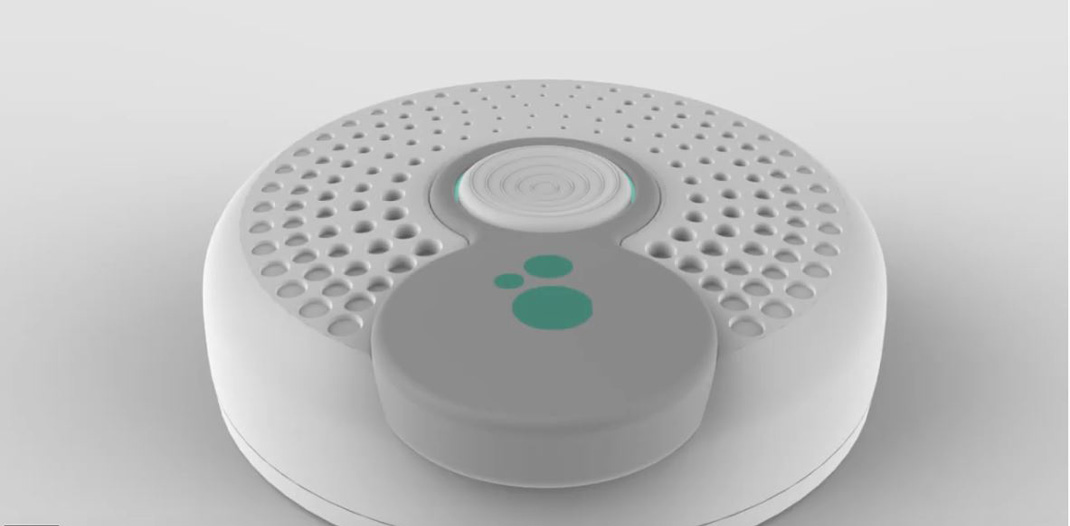Above: the team's residential mold spore detection device
Two Lynch School of Education and Human Development students and a teammate from North Carolina State University took third place out of nine finalists in the recent Stanford Center On Longevity Design Challenge, a global competition focused on finding solutions to complex problems people face as they age.
Lynch School senior Andrea Crewe and sophomore Zarah Lakhani teamed up with NC State senior Lindsey Dotson when they participated last November in the ImpACCt Design Summit, which brought students from three other Atlantic Coast Conference universities to BC and created cross-university teams to solve real-world problems by applying principles of design thinking and innovation.
The three designed a residential mold spore detection device – about the size of a smoke detector – to help people maintain healthy homes. They dubbed their venture Team SPORE, and were among 124 teams from 33 countries to enter the Stanford competition, which this year appealed for projects under the theme “Longevity-Ready Environments: Rethinking Physical Spaces for Century-Long Lives.”
Team SPORE's third-place honor included a $2,000 prize. To learn more about the project, watch their competition video presiention:
University Communications | April 2022




